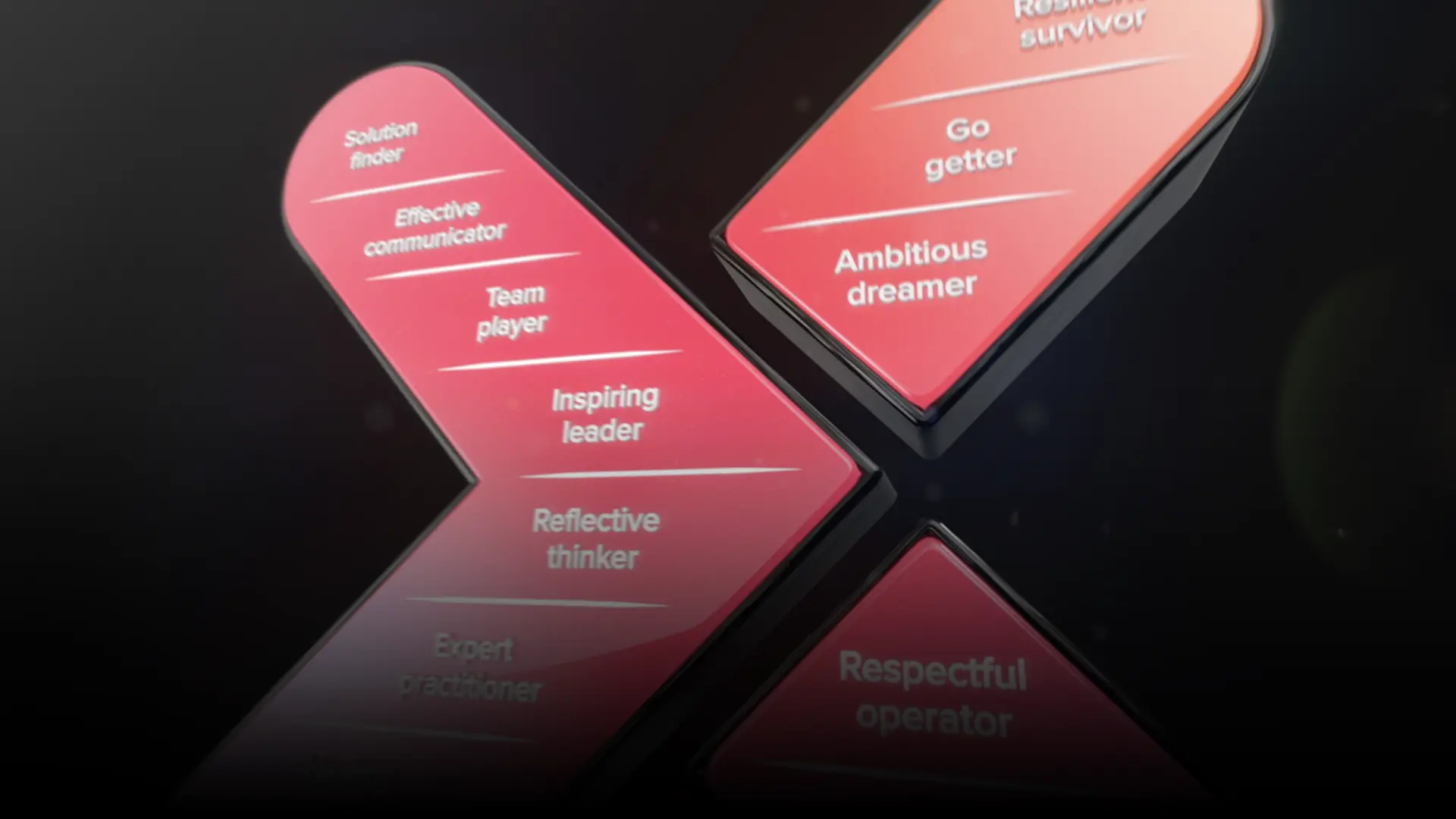

Understanding the science of success
At BecomingX, we’ve spent years studying some of the world’s most accomplished individuals, from iconic and celebrated leaders to everyday heroes who have overcome seemingly insurmountable odds to succeed in life. Our films with the world’s highest performers represent one of the most thorough qualitative studies into high performance and ‘success’ ever conducted, but they really are just the icing on top. Over 370 academic references (to date) as well as many published books (some of which we recommend on this website), and almost 1 million words of transcribed interviews inform our work to date. When we say we know what it takes to succeed, we really can back this up.
The X model: Attributes of the world’s highest performers
All of our research points to four key personal success factors that contribute to human potential and excellence, resulting in the ‘X model’ - a holistic framework that captures the essence of success in four areas: Skills, Knowledge, Attitudes, and Relationships.
1. Skills: The ability to perform defined tasks
2. Knowledge: The theoretical or practical understanding of a subject
3. Attitudes: Behaviours based on opinions and values
4. Relationships: The connections with other people
Other models exploring high performance and personal success
Unsurprisingly, we are not the first to explore the factors that impact human performance. There are several other models that informed the ‘X-model’, each of which is worth examining:
McKinsey: Defining the skills citizens will need in the future of work - Link to research
McKinsey undertook a major analysis of the skills (‘elements of talent’) needed to thrive in the ‘future of work’. Surveying 18,000 people across 15 countries, they identified 56 ‘foundational skills’ across 13 ‘skills groups’. Whilst evidence based and extremely detailed, as a model it is more challenging for individuals and organisations to adopt.
World Economic Forum: Top skills for 2025 - Link to research
The WEF has published several detailed skills assessments which have determined current skills requirements and those impacted by future trends. Simply identifying the top 10 skills for the future has appeal in its simplicity, albeit based on a significant amount of research across multiple countries.
The elephant in the room - these skills are not being taught
It may be surprising that despite so much research on high performance, so little has changed in education systems around the world. Simply review the personal attributes needed to succeed - how many young people are formally being taught these attributes at schools and universities? They are not learned (effectively) through passive observation, rather they are developed through explicit teaching and practical experience. Most companies have also been relatively slow in moving to learning and development programmes that teach these personal attributes.
Whilst knowledge will always remain critical to success, in a world where access to information is becoming ubiquitous, it is the human skills, attitudes and relationships that differentiate the high performers of today.
If you want to learn more about how to develop high performing students and professionals - please contact us.